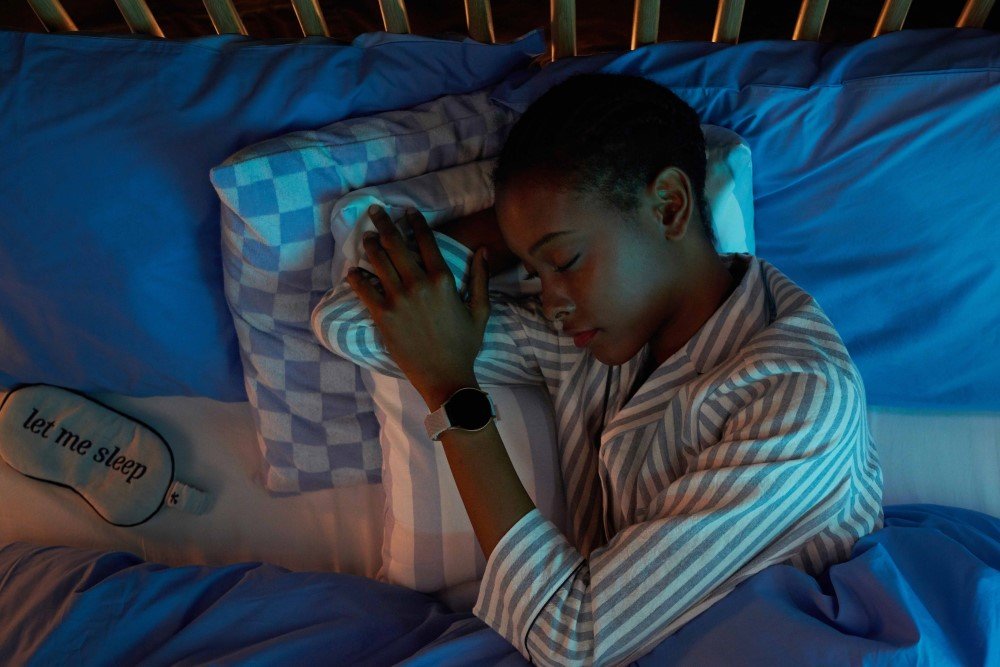“Galaxy Watch is my health partner, who monitor and guide for wellbeing consistently and help me to understand my health condition.”
The rapid evolution of wearable technology has highlighted the potential to use our devices not only to elevate our daily experiences but also to gain deeper insights into our holistic well-being. From empowering individuals to track their wellness to providing a wealth of health-related data, wearables like the Galaxy Watch series1 have begun to redefine how we approach healthcare. Discover how Samsung Electronics’ technology has impacted the lives and health of two individuals.
Ms. A, a 70-year-old woman with a history of cardiac surgery, recently experienced dizziness. So, she opted for an ECG patch test, but the findings were within the bounds of normalcy. Ms. A, mindful of her age and history of arrhythmia, wanted to monitor her health condition constantly. In response, the medical team at her hospital in South Korea recommended she use a Galaxy Watch along with a hospital-linked app to monitor her health status.
Following her outpatient visit, Ms. A continued wearing the Galaxy Watch in her daily life. On one occasion, she again experienced dizziness. The heart rate measured by the Galaxy Watch was slow, 40 beats per minute. This data was promptly shared with the ECG Reading Center at Sejong Hospital in Incheon, and she was told to come directly to the hospital with suspicion that she might be in an emergency condition. Ms. A was quickly admitted to the emergency room and underwent surgery to insert a pacemaker, a device that provides artificial stimulation to the heart when its function deteriorates. Thankfully, she safely left the hospital after the successful procedure.

Mr. B, a 62-year-old man residing in Brazil, was discharged from the hospital after heart valve surgery. Following the medical staff’s recommendation for a clinical study, he wore a Galaxy Watch daily and checked his physical conditions, including an electrocardiogram (ECG). During the remote observation period, Abnormal signals had been consistently detected by Mr.B’s Galaxy Watch. To address this, the hospital’s medical staff conducted a thorough video consultation. Through this consultation, the staff discovered that Mr.B has Parkinson’s disease, allowing the hospital to provide appropriate clinical guidance.
Patients experiencing motor symptoms or cognitive impairment, like those with Parkinson’s disease, need extra care during the post-surgery recovery phase. In this case, Parkinson’s disease wasn’t a major consideration at the time of his surgery, but the medical team can give Mr.B the right guidance with the abnormal data detected by Mr. B’s Galaxy Watch.
Ms. A, reflecting on her experience, said, “With the Galaxy Watch, I could keep an eye on my health more regularly.”
“Wearable devices such as the Galaxy Watch have made it easy to monitor health conditions in daily life,” explained an official from Sejong Hospital in Incheon, South Korea. “Continuous monitoring is required even after successful surgery, and we expect that wearable devices such as the Galaxy Watch have the potential to help in health management and monitoring.”
Thanks to innovative advanced Samsung’s BioActive sensor, the Galaxy Watch series delivers extensive readings — ECG,2 heart rate, blood pressure3 and body composition4 — and even provides workout guides to enhance exercise routines and coaching to improve sleep quality.5 Looking ahead, the health management capabilities of the Galaxy Watch are expected to play an even more significant role in comprehensively understanding and managing the wellness of people all over the world.
* Names have been changed to protect the privacy of the patients.
1 Intended for general wellness and fitness purposes only. Not intended for use in detection, diagnosis, treatment, monitoring or management of any medical condition or disease. Any health-related information accessed through the device and/or application should not be treated as medical advice. Users should seek any medical advice from a physician. Certain features may vary by market, carrier or the paired device.
2 The ECG feature is only available in select markets. It is not intended to replace traditional methods of diagnosis or treatment. The feature is not intended for users with known arrhythmias other than AFib. Users should not interpret or take clinical action based on the device output without consultation of a qualified healthcare professional.
3 The Blood Pressure feature is only available in select markets. To ensure accuracy, users should calibrate their device every four weeks with a traditional blood pressure cuff. The BP feature cannot diagnose hypertension, other conditions or check for signs of a heart attack. It is not meant to replace traditional methods of diagnosis or treatment by a qualified healthcare professional.
4 Body composition should not be used if you have an implanted pacemaker or other implanted medical devices or if you are pregnant. Measurement results may not be accurate if you are under 20 years old. Intended for general wellness and fitness purposes only.
5 Sleep features are intended for general wellness and fitness purposes only. The measurements are for your personal reference only. Please consult a medical professional for advice.
This article was first published at Source link . You can check them out for other stuffs
